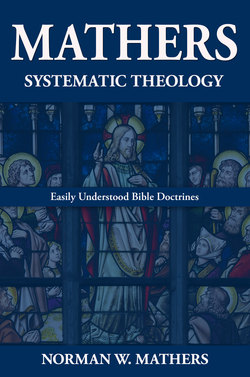Читать книгу Mathers Systematic Theology - Norman W. Mathers - Страница 20
2.5.2 Errancy is a philosophical faith and belief.
ОглавлениеThe scholar who does not believe in the inerrant Word of God comes with presuppositions and pre-understandings. He is a self-fulfilled prophecy. Trembath (1987:89) argues that the roots of religious certainty extend to the theory of knowledge which is called foundationalism by philosophers. Post-Enlightenment knowledge theories rest upon facts. These theories are a solid empirical foundation (ibid:89). Certainty was based on fact. The Bible is fact to fundamental evangelicals and evangelicals. The words of scripture give certainty to those who are believers in Christ. Trembath points to the authorial intention, the nuance of the words understood by biblical audiences, and usage established by lexicons as the basis for this certainty (ibid:89). Fundamental evangelicals and evangelicals argue for the verbal plenary inspiration of the scriptures or the verbal inspiration of the scriptures. The subjectivity of human authority sitting in judgment on the Word of God must be discarded. The verbal plenary inspiration of the scriptures extends to all parts of scripture (2 Tim. 3:16-17; 2 Pet. 1:20-21). The inspiration of the Word of God extends equally to both the Old and New Testaments (1 Tim. 5:18). It extends as well to the choice of the very words of scripture by the Holy Spirit (1 Cor. 2:13). The Word of God is inspired even to the very choice of letters (Matt. 5:18). The solid foundation of divine words which became the basis for facts argues for the certainty of the inerrancy of the scriptures.
